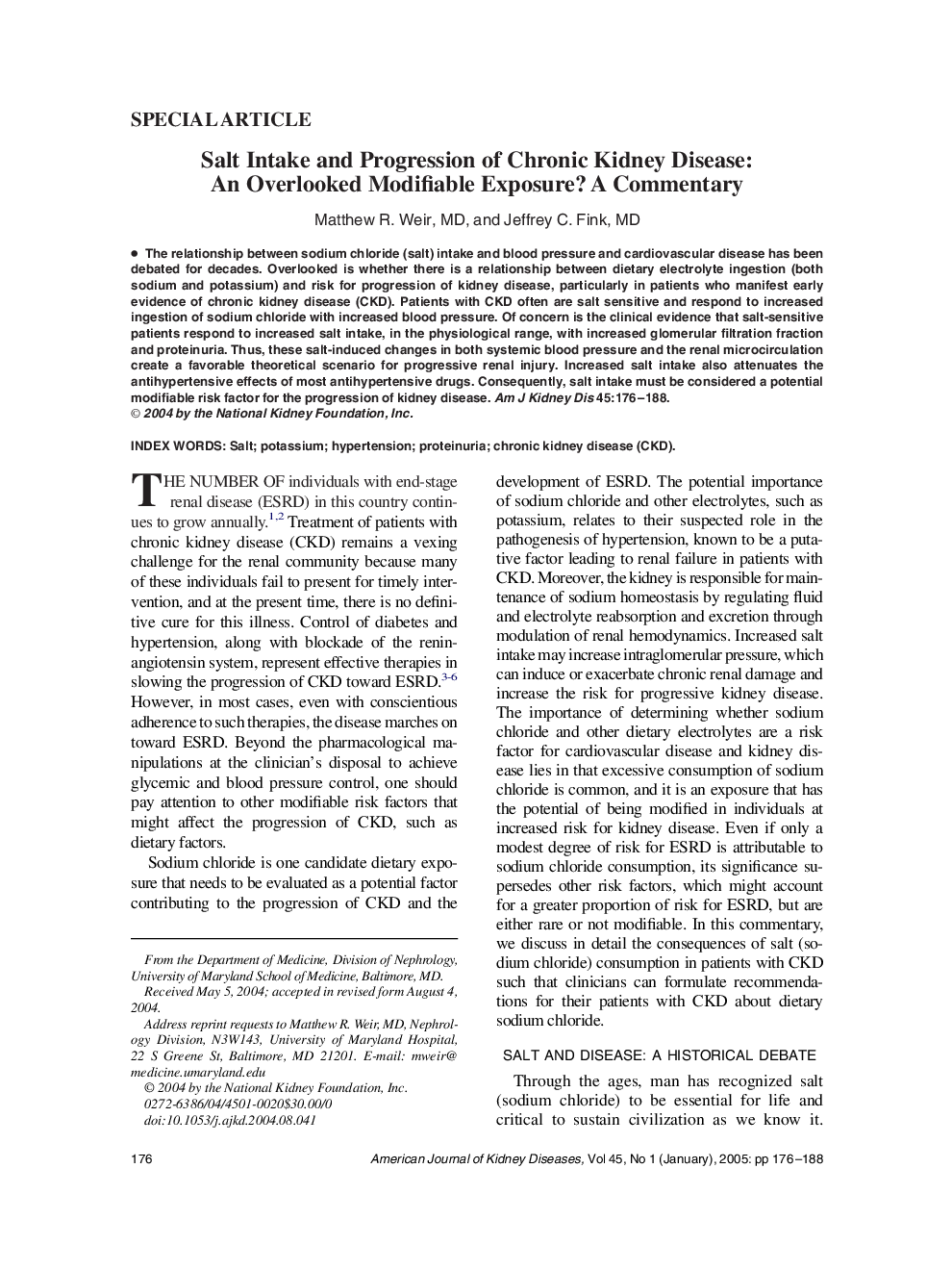| Article ID | Journal | Published Year | Pages | File Type |
|---|---|---|---|---|
| 10047790 | American Journal of Kidney Diseases | 2005 | 13 Pages |
Abstract
The relationship between sodium chloride (salt) intake and blood pressure and cardiovascular disease has been debated for decades. Overlooked is whether there is a relationship between dietary electrolyte ingestion (both sodium and potassium) and risk for progression of kidney disease, particularly in patients who manifest early evidence of chronic kidney disease (CKD). Patients with CKD often are salt sensitive and respond to increased ingestion of sodium chloride with increased blood pressure. Of concern is the clinical evidence that salt-sensitive patients respond to increased salt intake, in the physiological range, with increased glomerular filtration fraction and proteinuria. Thus, these salt-induced changes in both systemic blood pressure and the renal microcirculation create a favorable theoretical scenario for progressive renal injury. Increased salt intake also attenuates the antihypertensive effects of most antihypertensive drugs. Consequently, salt intake must be considered a potential modifiable risk factor for the progression of kidney disease.
Related Topics
Health Sciences
Medicine and Dentistry
Nephrology
Authors
Matthew R. MD, Jeffrey C. MD,
